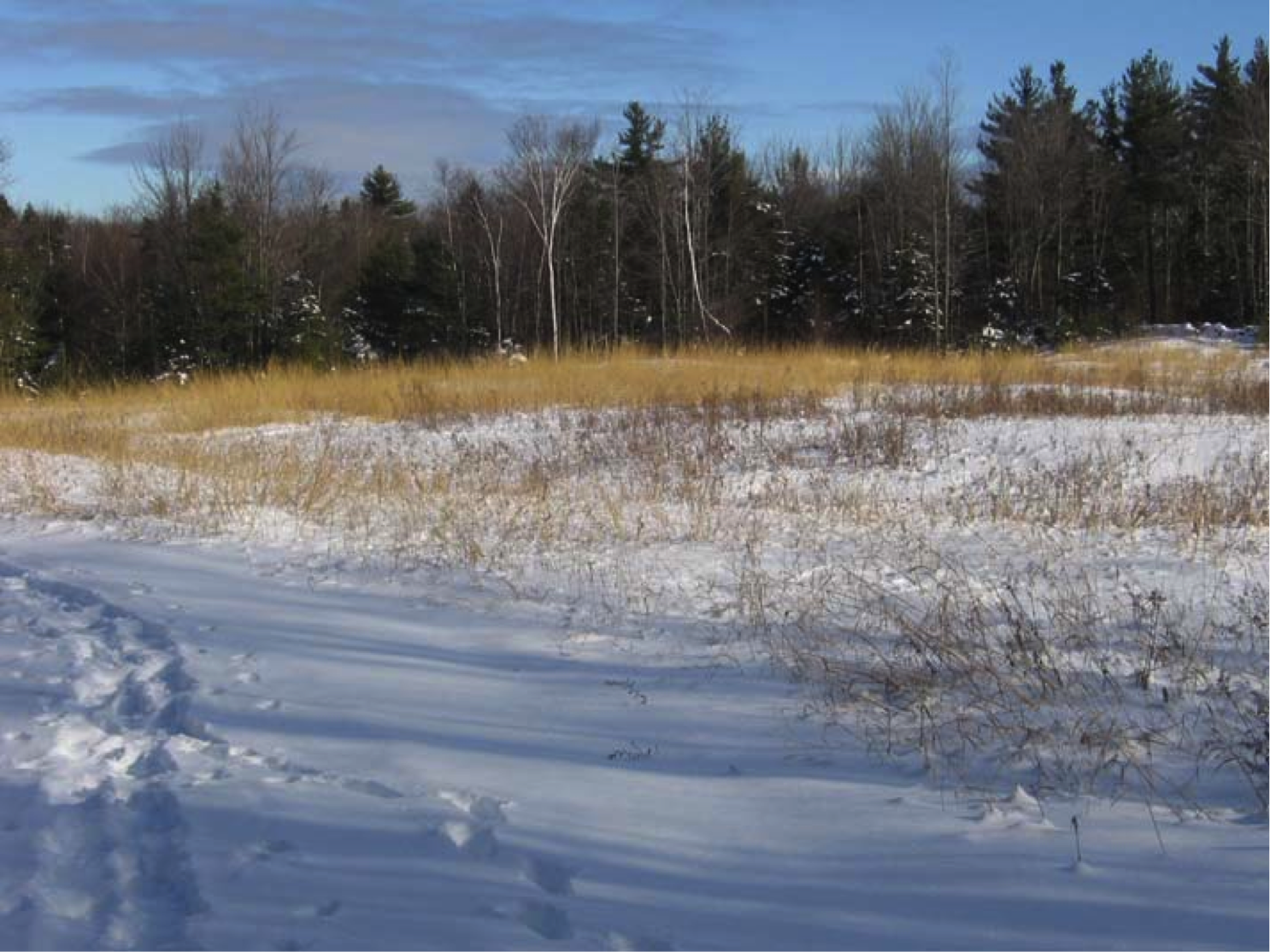Landowner Story: Fred Ernst - Managing Land For Wildlife Economically, Acworth, NH
 Fred Ernst owns 670 acres of forestland in Acworth, NH. His interest in managing land for wildlife began during his career in a forest-based industry. As Fred describes it, “We practiced sustainability of forests and encouraging wildlife was a natural part of the process. When I bought the land in Acworth in 2001, the land had been “high graded” [most commercial quality trees removed], which had a lot to do with my ideas for improvement”.
Fred Ernst owns 670 acres of forestland in Acworth, NH. His interest in managing land for wildlife began during his career in a forest-based industry. As Fred describes it, “We practiced sustainability of forests and encouraging wildlife was a natural part of the process. When I bought the land in Acworth in 2001, the land had been “high graded” [most commercial quality trees removed], which had a lot to do with my ideas for improvement”.
“The NH Coverts Project convinced me to actively manage the land for wildlife.” [Note: NH Coverts Project, administered by UNH Cooperative Extension, trains volunteers to promote wildlife habitat conservation and forest stewardship.]
Fred says he thought carefully about his goals and what to do to realize them and he took time to learn more about forests, forestry and habitats.
“I have a model in mind, an operating principle, to do timber and wildlife management economically. I want to show this type of treatment of land can be good for both.”
Among his first steps, Fred “created a five acre meadow and last year created two ten-acre and one seventeen-acre “patch cuts”, distributed through the forested area. The cost of this work was covered in part by federal cost-share programs. He adds, “I plan to do more work and grow better quality trees while supporting wildlife.” Fred also “reconstructed a road to access all the property and liberated an old two- acre apple orchard for wildlife.”
Another practice Fred feel is important is a natural area he’s designated on the property. “I decided to establish a fifty acre area around the beaver ponds as an uncut zone. I’ve posted that area as no hunting and intend to leave it as a natural area, to have the total diversity of the area protected. It is the area least affected by past logging and will make a good comparison with the managed areas over time.”
Fred says he has been “overwhelmed by the support” he’s received from public agencies such as UNH Cooperative Extension and USDA Natural Resources Conservation Service.
While he feels it’s too early to tell what all the results will be, he does say that “Already, I’ve seen substantially more wildlife than before – turkey, moose, deer, coyote and very active beaver in three different ponds.” And, he adds, “The cost is relatively under control.”
When asked what he’s learned from managing habitats, Fred says, “You have choices to make about how to spend wisely, improve the land and make a profit. By that I mean not taking advantage of the land, but investing in it. The most important thing is to have a clear set of goals and find people who can execute the plan. Think about the details in advance. Being narrower in describing goals is better for the people doing the work and you get what you want. I also realize that, despite all the professional advice, I had to make up my own mind. To do that I had to better understand forest conditions and identify what to do to reach my goals.” Thanks to Fred Ernst, 670 acres in Acworth will continue to support wildlife and trees, and do so.
Story by Frank Mitchell, UNH Cooperative Extension
 Fred Ernst owns 670 acres of forestland in Acworth, NH. His interest in managing land for wildlife began during his career in a forest-based industry. As Fred describes it, “We practiced sustainability of forests and encouraging wildlife was a natural part of the process. When I bought the land in Acworth in 2001, the land had been “high graded” [most commercial quality trees removed], which had a lot to do with my ideas for improvement”.
Fred Ernst owns 670 acres of forestland in Acworth, NH. His interest in managing land for wildlife began during his career in a forest-based industry. As Fred describes it, “We practiced sustainability of forests and encouraging wildlife was a natural part of the process. When I bought the land in Acworth in 2001, the land had been “high graded” [most commercial quality trees removed], which had a lot to do with my ideas for improvement”.